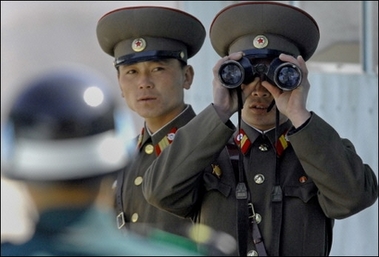North Korea to accept inspectors soon
(AP)Updated: 2007-04-12 09:16
SEOUL, South Korea - North Korea said it would welcome back UN nuclear inspectors within a day of receiving frozen funds that have been an obstacle in negotiations seeking the North's disarmament, a US presidential candidate said Wednesday.
However, he said the US insisted that was too long for the shutdown process that he believed would only take a "few days."
"We let them know that this was not acceptable and the issue was dropped," he said.
"Now the ball is in North Korea's court to take the next important steps," he said, adding that officials there had reaffirmed a commitment to making initial moves to disarm.
Acknowledging it might be difficult to meet the Saturday reactor shutdown deadline, he called on the North to show goodwill and invite UN inspectors by then "to at least start the process of shutting it down."
In Washington, State Department spokesman Sean McCormack said the United States had "gone the extra mile" to resolve the bank issue. He repeated the United States' expectation that North Korea will meet the shutdown deadline, and refused to speculate on consequences for Pyongyang if it fails to do so.
"We'll see where we are on Saturday," McCormack said.
The financial issue has brought the nuclear negotiations to a standstill as North Korea insisted it would not talk about disarmament measures until it gets its money back. Pyongyang has claimed that the freeze on its funds shows the United States' hostile intentions toward the isolated communist regime.
The US blacklisted the Macau bank in 2005 for its alleged complicity in counterfeiting and money laundering by North Korea.
US officials insisted that the financial dispute was no longer an issue.
"I think we have come to a very important juncture, which is we consider this (Banco Delta Asia) matter to be really resolved," US Assistant Secretary of State Christopher Hill said in Seoul after meeting South Korean diplomats. "Now is really an important time to get on with the ever-urgent task of denuclearization."
"We see no reason why (North Korea) should hold up anything right now," Hill said. "I don't want to get into extending the deadline."
Hill is expected in Beijing Thursday, and said he was open to a meeting there with North Korea's main nuclear negotiator, Kim Kye Gwan.
Earlier Wednesday, Richardson's delegation made a rare North to South crossing through the heavily armed Demilitarized Zone dividing the peninsula at the truce village of Panmunjom, also bringing with them the remains of six US soldiers from the Korean War.
North Korea ejected inspectors from the International Atomic Energy Agency in late 2002 at the start of the latest nuclear standoff. Following years of international negotiations beset by boycotts and delays, it conducted its first nuclear weapons test in October.
The North later agreed to return to negotiations and in February pledged to shut down its main nuclear reactor by a Saturday deadline in exchange for a US promise to resolve a standoff over $25 million in North Korean funds frozen in a Macau bank. North Korea would also receive energy aid and political concessions for eventually dismantling its atomic programs.
If North Korea follows through with its promises, they would be the first moves the country has made to scale back its nuclear development since the start of the nuclear standoff.
Authorities in Macau said Wednesday that North Korea can withdraw the frozen money, and Richardson said Pyongyang was expected to be notified of the decision later Wednesday or Thursday that the regime can access its funds.
|
||
|
||
|
|

